December 17, 2025
A Pause for Urban@UW and the Research to Action Collaboratory

A Pause for Urban@UW and the Research to Action Collaboratory For nearly a decade, Urban@UW and the Research to Action Collaboratory have brought people together to foster connection, collaboration and innovation across disciplines and communities. After much thoughtful consideration, and due to limited budget for the coming year, we have made the difficult decision to pause…
July 16, 2025
Urban@UW’s “Ripple Effects: Moving from Research to Action” Symposium and Gallery Exhibition

Urban@UW Director Rachel Berney facilitated conversations about knowledge exchange in the Research to Action Collaboratory. On Thursday, May 22nd, scholars, students, and community leaders gathered to share their insights into Urban@W’s Research to Action Collaboratory. Four RAC teams presented: Just Circular Communities Collaborative : working toward just environmental transitions within a circular economy frame in…
February 11, 2025
Exciting Updates from RAC Cohort 2
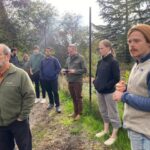
Last month the second cohort of the Research to Action Collaboratory gathered to share their progress. The Research to Action Collaboratory, or RAC, is an incubation program that provides dedicated team time, skill sharing, and seed funding. RAC teams include academics from different fields as well as community leaders who come together to tackle complex…
Advocacy & Civic Engagement | Design & Building | Diversity, Equity & Justice | Health & Well Being | Infrastructure & Transportation | Innovation & Technology | Natural Resources & Environment | Policy & Law
November 26, 2024
Urban@UW is working toward a future where cities are hubs of innovation, inclusivity, & sustainability.
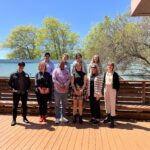
Research-to-Action Teams 2023-2024 In April of 2023 the teams selected for the inaugural cohort of the Research to Action Collaboratory (RAC) were announced. These groups combine the research capabilities of University of Washington scholars with frontline leaders embedded in their communities and government officials who can codify change. The Research-to-Action Collaboratory provides the teams with…
Advocacy & Civic Engagement | Arts & Culture | Climate & Energy | Data Science & Spatial Analysis | Design & Building | Diversity, Equity & Justice | Economy & Development | Education | Food | Health & Well Being | History & Preservation | Housing & Homelessness | Infrastructure & Transportation | Innovation & Technology | Land Use & Planning | Natural Hazards | Natural Resources & Environment | Policy & Law | Security & Privacy | Water
Join Urban@UW in creating innovative solutions for city dwellers, today and into the future.
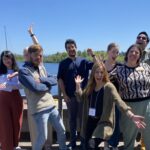
Support Urban@UW Urban@UW extends the understanding of cities—from people, buildings, infrastructure, and energy to economics, policy, culture, art, and nature—beyond individual topics to dynamically interdependent systems, so that we can holistically design and steward vibrant and welcoming cities in which future generations will thrive. Urban@UW works with scholars, policymakers, and community stakeholders to develop cross-disciplinary…
Advocacy & Civic Engagement | Arts & Culture | Climate & Energy | Data Science & Spatial Analysis | Design & Building | Diversity, Equity & Justice | Economy & Development | Education | Food | Health & Well Being | History & Preservation | Housing & Homelessness | Infrastructure & Transportation | Innovation & Technology | Land Use & Planning | Natural Hazards | Natural Resources & Environment | Policy & Law | Security & Privacy | Water
Creating multi-sector teams to build cities where everyone thrives.
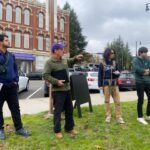
Research-to-Action Teams 2024-25 In April of 2024 two teams were selected for participation in the second cohort of the Research to Action Collaboratory. For 18 months Urban@UW will work with these teams to provide seed funds, dedicated time to building team cohesion and collaboration skills, and opportunities for peer support, shared resources, and learning. These…
Advocacy & Civic Engagement | Arts & Culture | Climate & Energy | Data Science & Spatial Analysis | Design & Building | Diversity, Equity & Justice | Economy & Development | Education | Food | Health & Well Being | History & Preservation | Housing & Homelessness | Infrastructure & Transportation | Innovation & Technology | Land Use & Planning | Natural Hazards | Natural Resources & Environment | Policy & Law | Security & Privacy | Water
Urban@UW’s Research to Action Collaboratory provides funding, facilitation, & tools to empower cross-disciplinary teams to solve urban problems
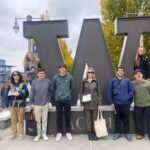
About the RAC The Research to Action Collaboratory serves as a catalyst for research teams, building their transformational collaborative capacity to address today’s most pressing urban challenges. The RAC combines financial support, thought partnership, and skill-building to increase the capacity of scholars, community stakeholders, and the UW for impactful, collaborative research. Today’s most pressing problems—from…
Advocacy & Civic Engagement | Arts & Culture | Climate & Energy | Data Science & Spatial Analysis | Design & Building | Diversity, Equity & Justice | Economy & Development | Education | Food | Health & Well Being | History & Preservation | Housing & Homelessness | Infrastructure & Transportation | Innovation & Technology | Land Use & Planning | Natural Hazards | Natural Resources & Environment | Policy & Law | Security & Privacy | Water
Urban@UW unites research, community insight, and policy to drive innovation for resilient and equitable cities.

Inclusive Data-Driven Innovation for the Future of Cities Urban@UW extends the understanding of cities—from people, buildings, infrastructure, and energy to economics, policy, culture, art, and nature—beyond individual topics to dynamically interdependent systems, so that we can holistically design and steward vibrant and welcoming cities in which future generations will thrive. In partnership with the College…
Advocacy & Civic Engagement | Arts & Culture | Climate & Energy | Data Science & Spatial Analysis | Design & Building | Diversity, Equity & Justice | Economy & Development | Education | Food | Health & Well Being | History & Preservation | Housing & Homelessness | Infrastructure & Transportation | Innovation & Technology | Land Use & Planning | Natural Hazards | Natural Resources & Environment | Policy & Law | Security & Privacy | Water
November 18, 2024
Seattle renters, workers need parking, but its cost can be shocking

Reported for The Seattle Times by Jessica Fu When Evelyn Burnett, 25, began her Seattle apartment search this past summer, she knew she’d have to budget for parking. But she was not prepared for the prices she encountered. Across the four rental buildings that she toured, parking fees ranged from $250 to $350 per month….
Advocacy & Civic Engagement
November 8, 2024
Crows hold grudges against individual humans for up to 17 years
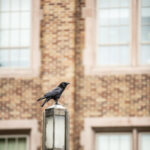
Reported by Eric Falls for Earth.com Crows are more than just black-feathered figures cawing from treetops; they are masters of memory and grudges, with cognitive abilities that defy our expectations. While we often admire birds for their bright plumage and lilting songs, there is a deeper layer to their behavior that remains unseen. Birds are…
Advocacy & Civic Engagement | Climate & Energy | Design & Building | Health & Well Being | Land Use & Planning | Natural Hazards | Natural Resources & Environment